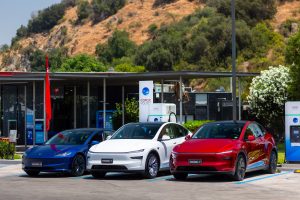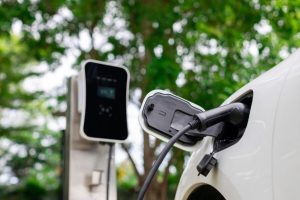
Anfavea, IturanMob, General Motors and GWM Reveal Prospects for the Electric and Hybrid Vehicle Market in Brazil
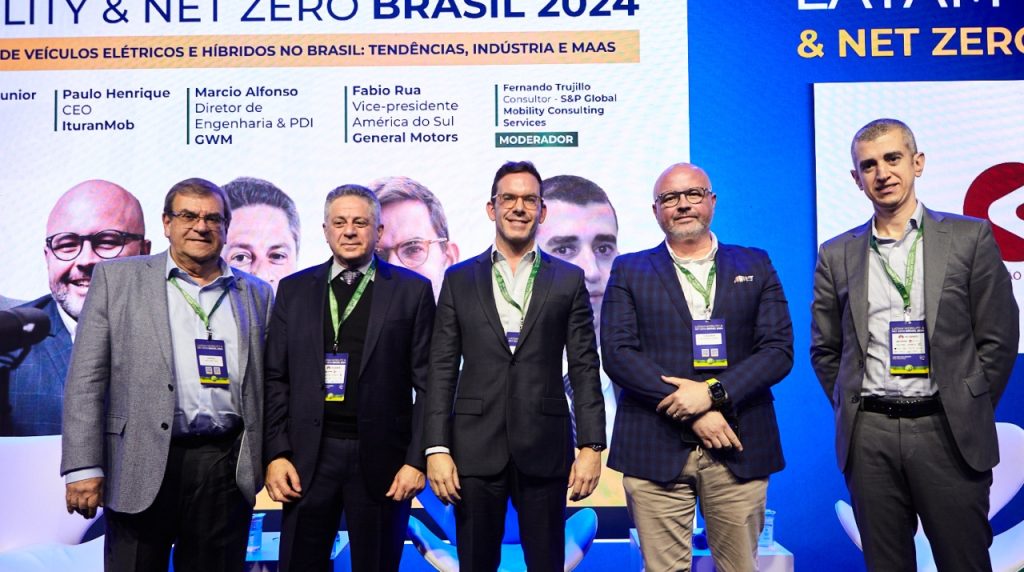
Electric vehicles are emerging as the primary sustainable “weapon” for promoting urban mobility. With this in mind, Latam Mobility organized a high-impact meeting in Brazil, bringing together leaders and experts in the sector to discuss this landscape.
The event kicked off with a panel titled “Perspectives for the Electric and Hybrid Vehicle Market in Brazil: Trends, Industry, and MaaS.” The panel featured Paulo Henrique, CEO of IturanMob, Fabio Rua, Vice President of General Motors in South America, Marcio Alfonso, Director of Engineering and PDI at GWM, and Henry Joseph Junior, Technical Director of ANFAVEA.
They discussed interesting and crucial points under the moderation of Fernando Trujillo, a consultant from S&P Global Mobility Consulting Services.
Significant Changes
Paulo Henrique, representing IturanMob, highlighted significant changes occurring in the automotive industry regarding electrification, new fuels, and the efficient management and use of data.
“We are at a moment of transformation affecting both vehicle technology and how we use them, driven partly by the integration of the internet into our daily lives,” he stated.
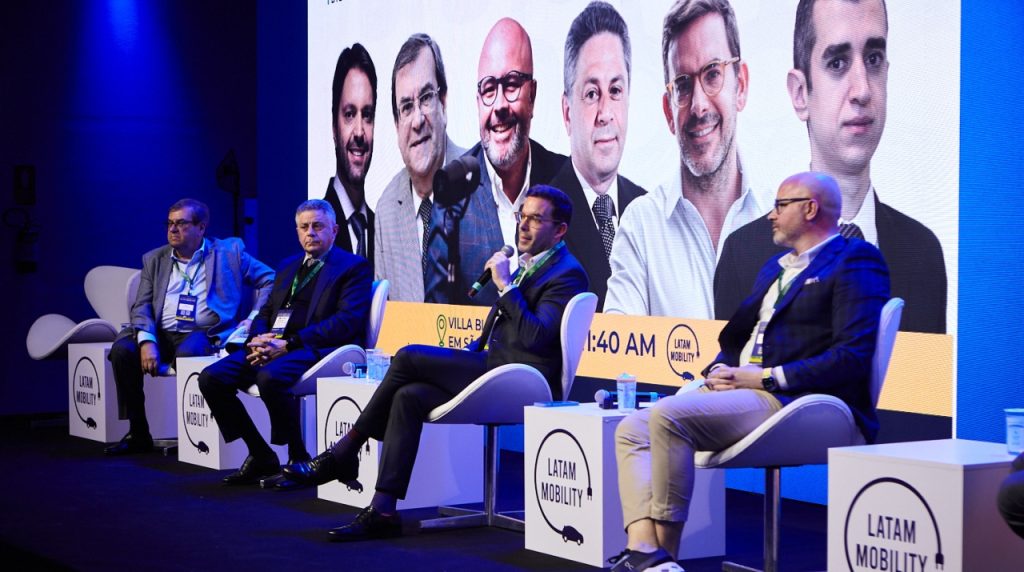
Regarding IturanMob, the Israeli multinational has expanded its car-sharing service to 27 countries, addressing the transition from combustion cars to electric ones and improving efficiency in vehicle sharing and data management.
“Brazil faces challenges in the necessary infrastructure to support electric cars, charging anxiety, and the availability of charging stations. However, there have been significant advances in these aspects in recent years,” he continued.
Currently, IturanMob has about 800,000 cars in Brazil equipped with its devices, collecting valuable data that helps automakers and energy operators better plan the distribution of charging and the use of electric vehicles.
General Motors in Brazil
Fabio Rua, an executive at General Motors, discussed several key points regarding the company’s situation and prospects in Brazil and the automotive industry in general.
He emphasized the significance of the moment General Motors is experiencing in Brazil, celebrating nearly 100 years of continuous operation in the country, navigating various political, economic, and social cycles.
“The company has grown and contributed significantly to technological development and job creation,” he asserted. Rua highlighted that the automotive sector is undergoing the greatest transformation in its history, referring to the transition from combustion vehicles to electric ones.
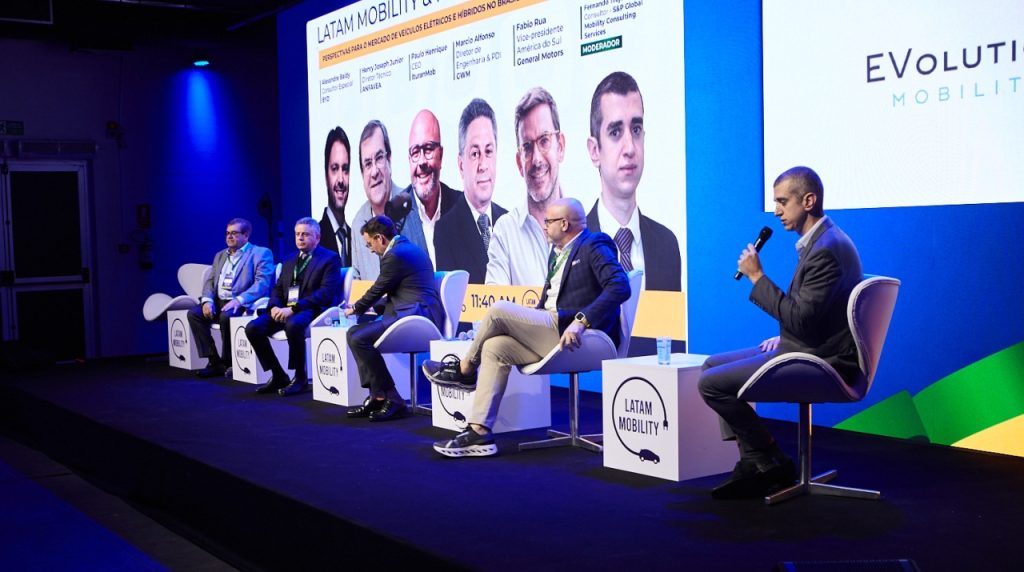
This change is technological, altering driving methods and user experiences, involving new models and paradigms, especially regarding electric vehicle recharging, which can cause anxiety among some consumers.
Moreover, he mentioned the rapid progress in adopting this technology and how the entry of new participants in the automotive chain has positively accelerated this process. Rua stated that there is room for both combustion and electrified vehicles in different environments.
“GM’s upcoming launches in Brazil include both electric and combustion vehicles, the latter being increasingly energy-efficient. I am optimistic about reducing emissions and the less polluting future of combustion vehicles,” he concluded.
A Different Era
Marcio Alfonso, representing GWM, spoke about the importance of technological advances in the automotive industry and the need to decarbonize the transport system. With four decades of experience in the sector, he emphasized that we are living in a very different and exciting era for automotive technology.
He pointed out that internal combustion engines remain relevant, especially in Brazil, due to their efficiency and the possibility of using renewable fuel sources. He noted advances in turbo engines, refined electronics, and sophisticated emission control systems.
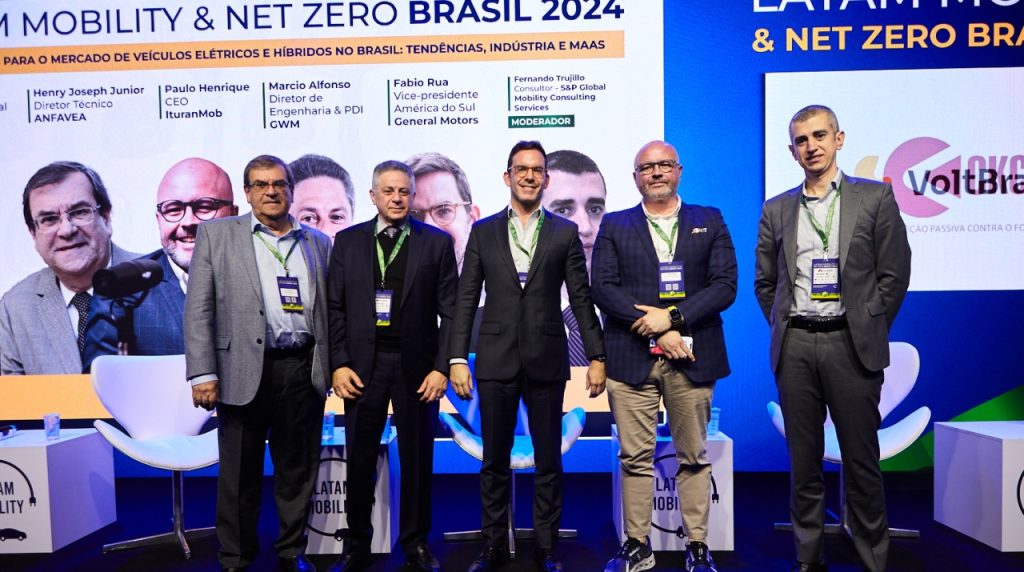
Additionally, he mentioned innovations in integrated electric transmissions, wheel traction systems, and the incorporation of artificial intelligence in vehicles. These technologies enable greater energy efficiency, reduced consumption, and emissions, thus contributing to air quality in large cities and vehicle safety.
He also highlighted the importance of vehicle safety and the lifecycle control of products, from manufacturing to recycling. He concluded by stating that this is a fascinating time for the industry due to these developments and the ability to offer more efficient and safer solutions.
Brazil’s Role
Henry Joseph Junior, an executive at ANFAVEA, addressed several key topics related to the automotive industry and sustainable mobility, discussing the importance of decarbonization and the environmental impact of transport technologies. He mentioned that although biofuels are useful, they do not meet all the industry’s needs.
Joseph emphasized the need for Brazil to advance towards electrification and develop adequate infrastructure in the auto parts and battery sector to support local electric vehicle production. He welcomed new companies, especially Chinese, entering the Brazilian market and contributing to job creation and infrastructure development, which is vital for product export.
He highlighted governmental programs like Inovar-Auto, Rota 2030, and Mover, which support the sector’s evolution towards sustainability. “Brazil faces challenges in exporting automotive products and needs to increase market share in Latin America to achieve adequate production volumes,” he stated.
He also mentioned the importance of nationalizing components and the significant investments made by automakers, thanks to the predictability provided by these governmental programs.
Finally, Joseph stressed the concern over the unused installed capacity in the Brazilian automotive industry and the competition from products manufactured elsewhere, reiterating the importance of addressing these issues to ensure the growth and sustainability of the Brazilian automotive market.




